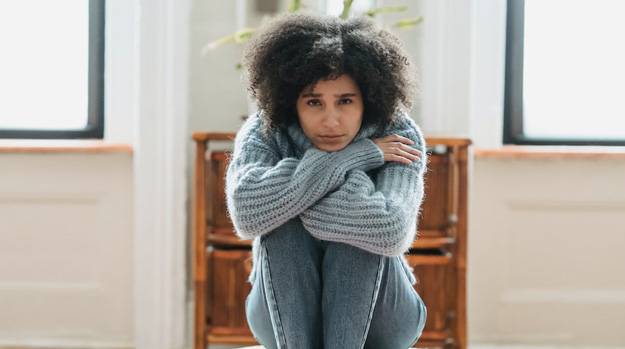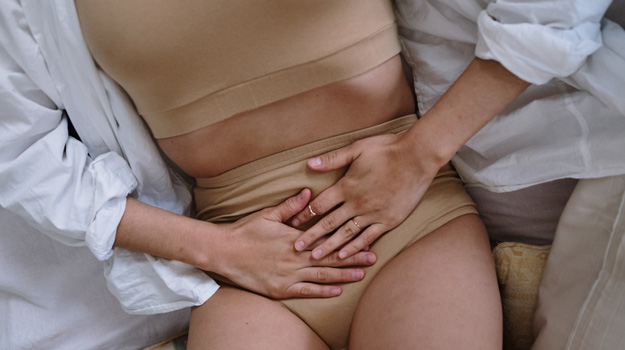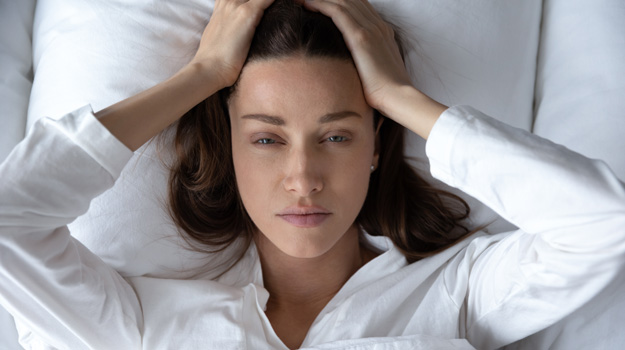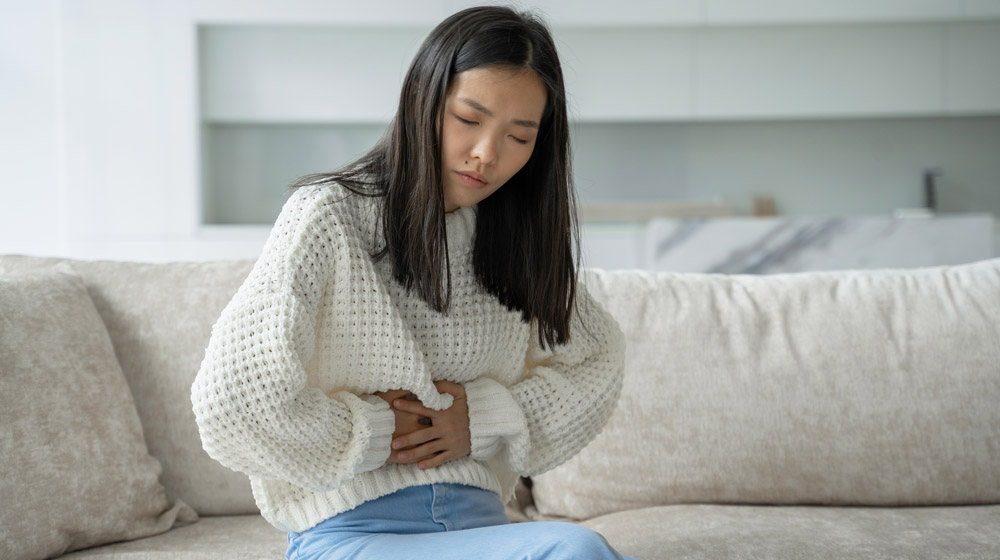As a doctor, I’ve heard countless women express their frustration, saying, “My period makes me feel sick and tired,” or “Why am I feeling weak and shaky during my period?”
What many don’t realize is that they might be grappling with a condition known as:
“PERIOD FATIGUE.”
But what exactly is this phenomenon, and why does it leave so many of us drained and weary each month? Read on to explore the truth about period fatigue, uncover its mysteries, and learn strategies for overcoming it.
Understanding Period Fatigue and Its Urgent Warning Signs
Why Am I So Tired During My Period?

Tiredness during your menstrual cycle is a common and often frustrating issue many experience. It can be divided into two distinct phases:
Fatigue Before Period (Premenstrual Fatigue)
Before your period begins, you might notice a sense of exhaustion setting in.
This premenstrual fatigue can be attributed to hormonal fluctuations, primarily a drop in estrogen and progesterone levels. These hormonal shifts can affect neurotransmitters like serotonin, leading to mood swings and, in some cases, increased fatigue.
Symptoms of fatigue before the period often include irritability, breast tenderness, and abdominal bloating, which can further contribute to feelings of tiredness.
Fatigue During Period (Menstrual Fatigue)
Once your period starts, you may continue to experience fatigue.
This condition results from the body working harder to shed the uterine lining, which requires increased blood flow to the pelvic area. Losing blood and essential nutrients like iron can contribute to a sense of weakness and tiredness.
Painful menstrual cramps and discomfort can further exacerbate this fatigue.
What is Period Fatigue? What Are the Causes?

Period fatigue, or menstrual fatigue, is a broader term encompassing the exhaustion experienced throughout the menstrual cycle.
While the hormonal fluctuations mentioned earlier play a significant role, several other factors contribute to period fatigue:
- Anemia: Excessive blood loss during menstruation can lead to anemia, resulting in reduced oxygen-carrying capacity in the blood, leading to fatigue and weakness.
- Stress and Anxiety: Emotional and psychological factors can worsen fatigue during your period. Stress can disrupt sleep patterns, making you feel more tired.
- Poor Diet: A diet lacking nutrients, especially iron and B vitamins, can worsen period fatigue. These nutrients are crucial for energy production and overall health.
- Lifestyle Factors: Inadequate exercise, poor sleep habits, and excessive caffeine or alcohol consumption can all contribute to feeling more tired during your period.
- Medical Conditions: Certain conditions like polycystic ovary syndrome (PCOS), endometriosis, and thyroid disorders can exacerbate period fatigue.
Is Period Fatigue a Menopause Symptom?

Period fatigue can affect individuals of reproductive age at any time during their menstrual cycle. However, it’s not hard to notice that period fatigue becomes more common and may worsen over time, especially among those approaching menopause.
Still, despite its prevalence among perimenopausal and menopausal individuals, period fatigue is not considered a specific symptom of menopause itself but rather a symptom of premenstrual syndrome (PMS). Thus, it’s often referred to as PMS fatigue.
What Conditions Are Associated With Period Fatigue?
Period fatigue can be a symptom of various underlying conditions, worsening the exhaustion experienced during the menstrual cycle. Here is why women shouldn’t ignore it, as some of the conditions associated with period fatigue include:
Premenstrual Syndrome (PMS)
PMS encompasses a range of physical and emotional symptoms in the days or weeks leading up to menstruation. Fatigue is a common component of PMS, often referred to as PMS fatigue, and is thought to result from hormonal fluctuations during this phase.
Iron Deficiency Anemia
Excessive blood loss during menstruation can lead to iron deficiency anemia, known as anemia period. The loss of iron-rich blood can result in reduced oxygen-carrying capacity in the body, leading to fatigue and weakness.
This condition is prevalent among individuals with heavy menstrual bleeding.
Thyroid Disorders
Thyroid disorders, such as hypothyroidism (underactive thyroid) or hyperthyroidism (overactive thyroid), can disrupt the body’s metabolic processes and lead to fatigue. Thyroid dysfunction can also impact the menstrual cycle, contributing to period fatigue.
How Long Does Period Fatigue Last?

The duration of period fatigue can vary significantly from person to person, depending on individual factors and the intensity of the menstrual cycle.
- Overall Health: A person’s general health and wellness are crucial. Individuals with underlying medical conditions such as anemia or thyroid disorders may experience prolonged fatigue not limited to their menstrual cycle.
- Hormonal Variability: Hormonal fluctuations during the menstrual cycle can impact period fatigue duration. Some individuals may feel tired for just a few days before or during their period, while others may experience fatigue for extended periods.
- Menstrual Flow: The heaviness of menstrual bleeding can affect period fatigue duration. Those with heavier flows may experience more profound fatigue.
Typically, period fatigue aligns with the menstrual cycle, with fatigue peaking just before and during menstruation. However, some individuals may feel tired after their period ends.
How to Get Rid of Period Fatigue
Managing period fatigue involves a combination of lifestyle changes, at-home remedies, and, in some cases, medical interventions:
- Regular Exercise: Regular physical activity can boost energy levels, improve mood, and reduce fatigue. Light exercises like walking, yoga, or swimming can be particularly beneficial during your period.
- Adequate Sleep: Ensure you get enough rest, as poor sleep quality can worsen fatigue. Maintain a consistent sleep schedule and create a bedtime routine.
- Stress Management: Stress can exacerbate fatigue, so practice stress-reduction techniques like deep breathing, meditation, or mindfulness.
- Over-the-counter Pain Relief: Non-prescription pain relievers like ibuprofen can help alleviate menstrual cramps and associated fatigue.
- Prescription Medications: A healthcare provider may recommend prescription medications or hormone therapy to manage period-related fatigue for those with severe symptoms.
What to Eat When Feeling Weak on Period?

Nutrition plays a crucial role in preventing and managing period fatigue. Eating the right foods can help maintain energy and overall wellness during menstruation.
Beneficial foods for period fatigue include:
- Iron-rich Foods: Lean meats, fortified cereals, spinach, and lentils provide essential iron to counteract blood loss.
- Complex Carbohydrates: Whole grains like oats, brown rice, and quinoa release energy slowly and help stabilize blood sugar levels, reducing fatigue.
- Fruits and Vegetables: These provide essential vitamins and minerals, like potassium, which can help with muscle cramps associated with periods.
- Healthy Fats: Avocados, nuts, and seeds contain healthy fats that provide long-lasting energy.
- Protein: Incorporate lean protein sources like poultry, fish, tofu, and beans into your meals to support muscle function.
- Hydrating Foods: Foods with high water content, like watermelon and cucumbers, can contribute to overall hydration.
Bottom Line
By focusing on a balanced diet and adopting healthy lifestyle practices, women can minimize period fatigue and maintain their energy levels throughout their menstrual cycle. However, consult a healthcare provider if your period fatigue persists or worsens, as it could be a sign of an underlying medical condition that requires attention.

